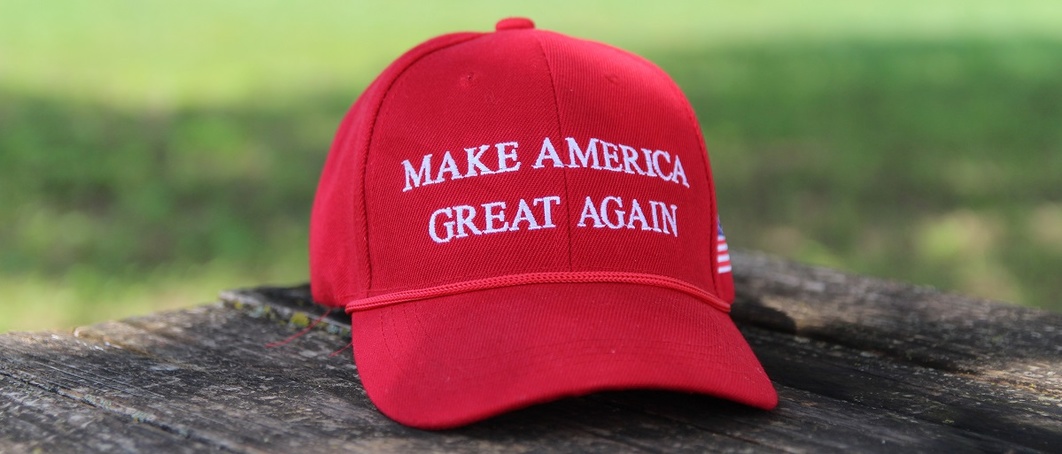
Andrew Hallam
11.12.23
Why Donald Trump’s Court Cases and Wealth Should Influence Your Investments
_
New York attorney general, Leticia James, successfully wrestled former US president, Donald Trump, back into the courtroom. She’s accusing him of fraud for inflating his assets to receive preferential loan treatments.1
The former teflon-like president might have been doing that for, oh, about 40 years. What’s more, when you pull the blond curtain back, you might find that you’re a better investor than Donald Trump himself.
That might sound like a bucket of bull. But let’s back this up, provide a bit of context, and then prove the case.
In Timothy L. O’Brien’s book, TrumpNation: The Art of Being The Donald, Donald Trump said he was worth $500 million in 1982. At the time, Forbes magazine said he was worth about $200 million.
Forbes publishes an annual list of richest Americans. Back in 1999 they wrote,"We love Donald [Trump] He returns our calls. He usually pays for lunch. He even estimates his own net worth. But no matter how hard we try, we just can't prove it."
In 2019,former Trump lawyer Michael Cohen testified in court,“It was my experience that Mr. Trump inflated his total assets when it served his purposes, such as trying to be listed amongst the wealthiest people in Forbes.”
In 2023, Forbes reports that Donald Trump’s net worth has grown to about $3.1 billion. The New York Times reports2 that the base of that wealth came from his father.
Still, growing a net worth of $200 million in 1982 to $3.1 billion in 2023 is no small feat, right? Donald Trump’s wheeling and dealing saw him invest in casinos, golf courses, apartments, hotels, an airline, a magazine and a premier vodka. Many of these products humbly took his name.
But you could have done better than Donald Trump…without working a single day.
Imagine if you inheritied a whack of dough from your family. You had $200 million in 1982.
You invested your $200 million in a portfolio of Vanguard’s index funds: 80 percent in US stocks and 20 percent in bonds.
In 1982, you chose to outdo Richard Branson. Three years before, he bought one of the British Virgin Islands for $120,000. You withdrew $1 million from your portfolio to buy a bigger and better piece of rock, palm and sand just a boat ride away.
You decided to spend an inflation-adjusted $10 million from your portfolio every year. That means, you withdrew more money every year. You partied. You invited the Rolling Stones and Taylor Swift to your island.
Get International Investing insights
in your inbox once per month
By 2023, you would have withdrawn a total of $780 million. That’s more than Mick Jagger’s net worth.
And after all those withdrawals, your portfolio would be worth about $6.2 billion by November 2023. That’s twice as much as Richard Branson has now…and twice as much as Trump.3
If your portfolio were invested 80 percent in global index funds and 20 percent in bonds, it would be worth about $4.2 billion.
That’s still 35 percent more than Donald Trump has today.
And you didn’t work.
No working on real estate deals.
No negotiating casino deals or figuring out how to run them.
No premium vodka.
No starring on the apprentice.
No bestselling books.
No borrowing money to leverage your assets.
Trump worked hard. But you wouldn’t have had to.
At a 2016 political rally in Phoenix, Arizona, Trump said, “I went to the Wharton School of Business…I’m like, a really smart person.”
That might be true. Maybe.
But if you own a portfolio of index funds, you’ll invest circles around the guy.
Sources
1. https://edition.cnn.com/2023/11/01/politics/trump-fraud-168-million/ind…
2. https://www.nytimes.com/interactive/2018/10/02/us/politics/donald-trump…
3. https://www.forbes.com/sites/danalexander/article/the-definitive-networ…
Andrew Hallam is a Digital Nomad. He’s the bestselling author Balance: How to Invest and Spend for Happiness, Health and Wealth. He also wrote Millionaire Teacher and Millionaire Expat: How To Build Wealth Living Overseas
Swissquote Bank Europe S.A. accepts no responsibility for the content of this report and makes no warranty as to its accuracy of completeness. This report is not intended to be financial advice, or a recommendation for any investment or investment strategy. The information is prepared for general information only, and as such, the specific needs, investment objectives or financial situation of any particular user have not been taken into consideration. Opinions expressed are those of the author, not Swissquote Bank Europe and Swissquote Bank Europe accepts no liability for any loss caused by the use of this information. This report contains information produced by a third party that has been remunerated by Swissquote Bank Europe.
Please note the value of investments can go down as well as up, and you may not get back all the money that you invest. Past performance is no guarantee of future results.
